OUR STORY
COOKPIT Story
Chapter 1
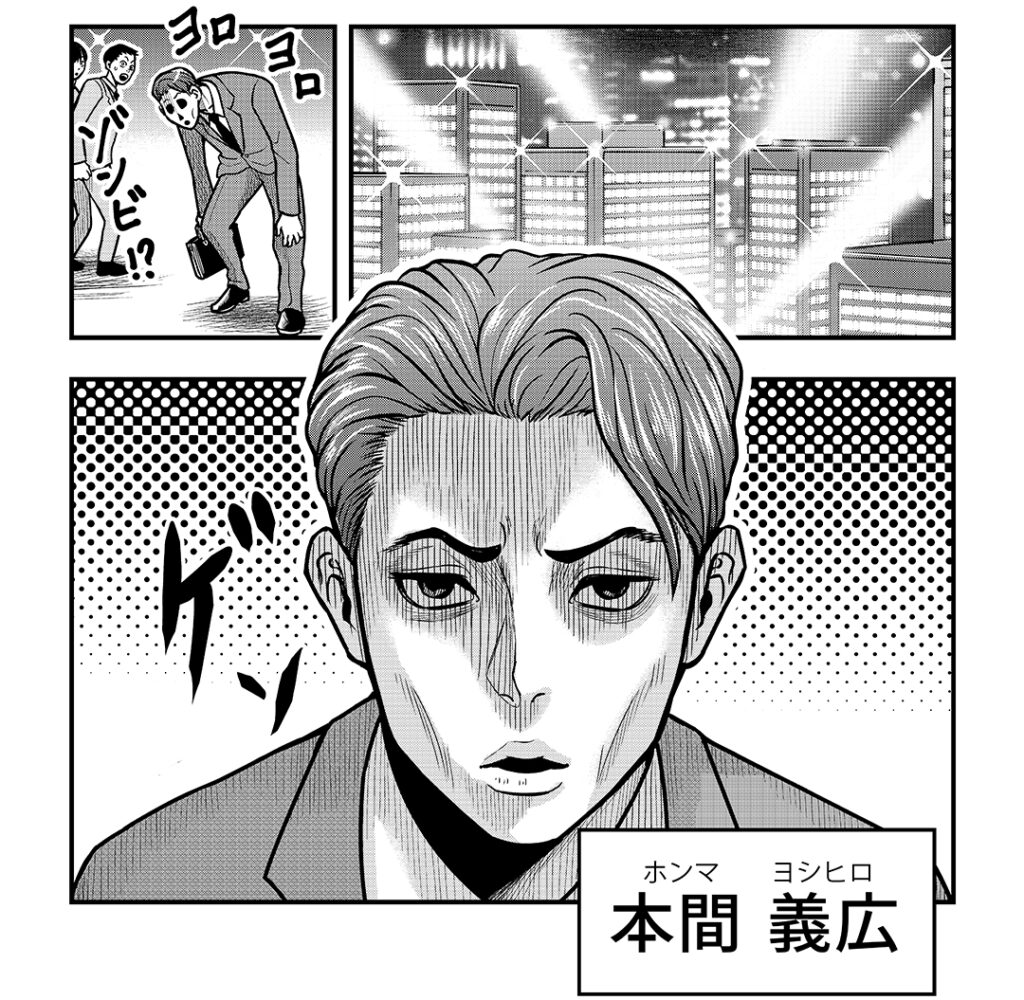
A life-changing encounter with a bowl of Ramen
November 1992 was the year that Japanese astronaut Mohri launched into space.
Homma served as a supervisor at Red Lobster, and was busy running around the 13 stores he managed every day.
At that time, it was normal for my workload to exceed 350 hours per month, and I would work from morning till night until I was exhausted.
At that time, after visiting the Roppongi store and walking down a gentle slope towards Nishi-Azabu, I came across a Hakata Ramen restaurant called Aka Noren, which always had a queue even in the middle of the night.
At first, I passed by the store without paying it much attention, but then I couldn't help but turn back and line up to eat.
"Delicious!!!"
I was truly moved.
Immediately after graduating from high school, Honma entered the food service industry as a Japanese chef, and spent 10 years training as a chef. Although he had eaten many delicious foods, he had not often been impressed by them.
The Ramen, which costs 600 yen per bowl, has a three-layered soup with a sweet, milky aroma and none of the fishy smell that is typical of Hakata Ramen.
At first glance it looked like it was greasy, but in fact it had a layer of high-quality Collagen, a layer with fine pieces of floating meat, and finally a layer of rich, high-quality soup that was refreshing to drink.
"This flavor can only be achieved by using fresh ingredients, not frozen ingredients!!"
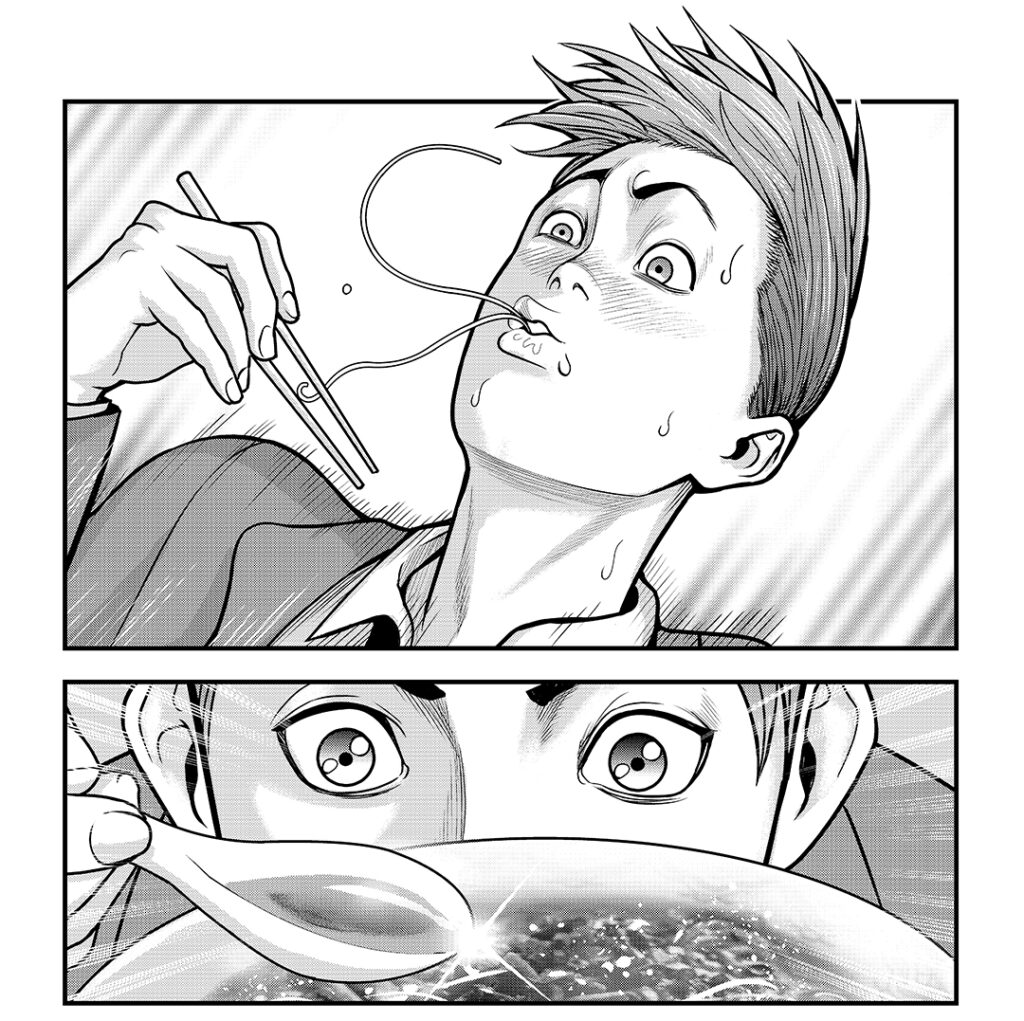
However, that was all Honma knew at the time.
I really wanted to know how it was made, so the next day I went to a store that didn't even have any job openings and asked to be hired.
The results are:
"What are you doing here?! Have you come to steal my taste?!"
and was turned away.
Homma couldn't give up and went back to the store the next day and begged again, but the result was the same.
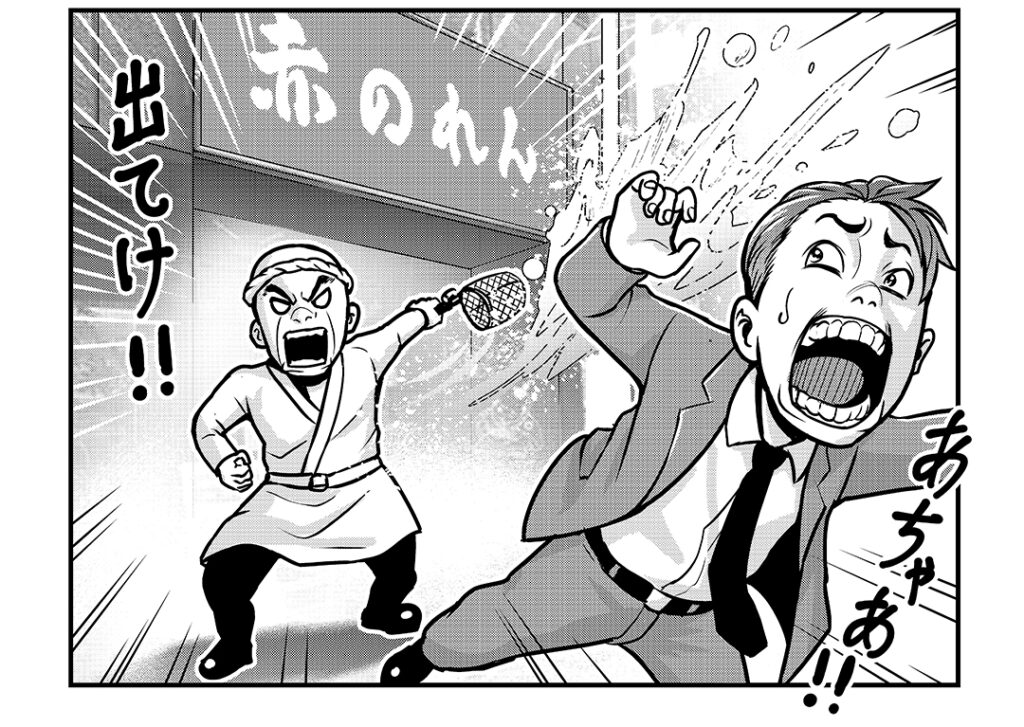
As expected, it wasn't that easy to get in...
"Why... I bet he can't come here every day! Let's go again next week."
Thinking this, I visited the following week, but the owner's mood only got worse. It was almost hopeless for Homma to get into the restaurant.
However, for better or worse, Homma, who could be described as optimistic, came up with the following idea:
"Not in the same month! Let's come again next month when Dad has forgotten about it."
The answer was:
The following month, he went back to ask again, and perhaps his father had finally given in, or perhaps they were short-staffed after a part-time worker quit, but he said, "I'll let you work in the dishwashing area for 800 yen an hour," and so Homma entered the world of Ramen on December 4, 1992. Homma was 35 years old at the time.
However, although I was able to get a job at the Ramen restaurant I had always dreamed of, I hadn't yet told my family that I had started working at a job that paid 800 yen an hour.
It must have been a big event for his family when Honma, a super player with an annual income of over 8 million yen, was forced to take a part-time job paying 800 yen an hour.
However, Honma himself quit his job without giving it much thought and started working part-time.
2. Ramen Shop Ambitions
It's been six months since I started working part-time at Ramen shop without telling my family.
Honma has continued to fight in the food and beverage industry with the motto "I won't lose to anyone!", but he will experience his first defeat at Ramen shop.
I had 10 years of training as a Japanese chef, so I was confident in my physical strength and didn't find working long hours difficult.
Also, I had eight years of experience as a supervisor at Red Lobster, so I didn't feel like I could lose as an operations specialist, but there was one time I did lose.
It was speed.
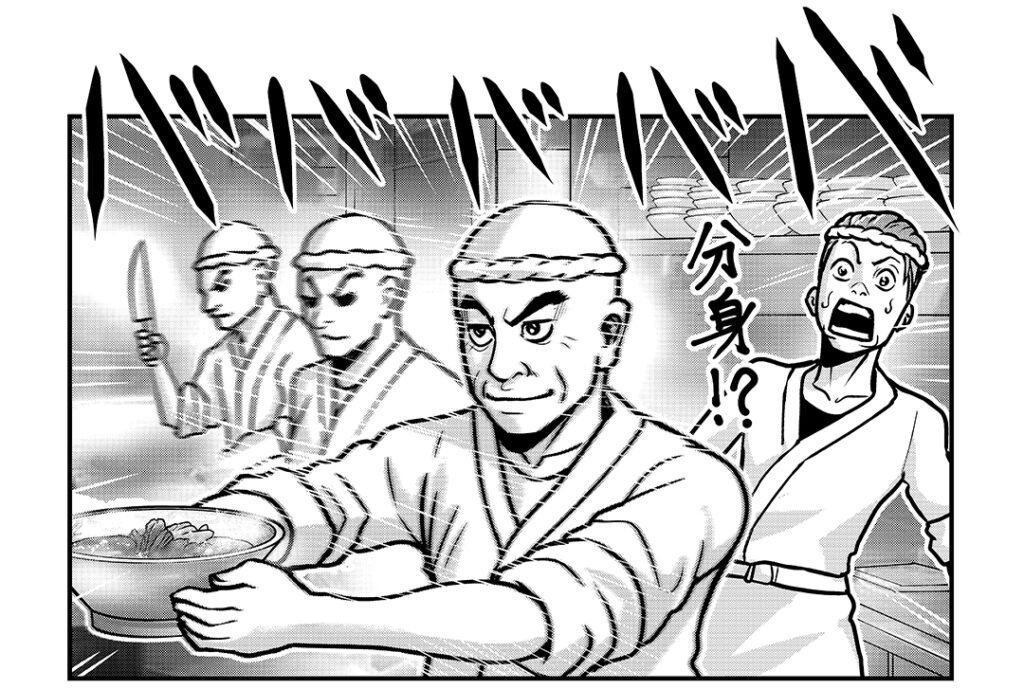
It was a small shop of only 12 tsubo (approx. 40 sq. m), but it was a popular store that generated monthly sales of over 10 million yen.
During weekday lunchtimes, the restaurant serves as many as 250 customers. For such a small restaurant to generate such high sales, the turnover rate is incredible.
It was so busy that for the first two months I was so busy with the work at hand that I could barely keep an eye on it.
As the new year began and I finally got used to the speed of the store, I was finally able to feel the atmosphere of the store, and I had the time to stop what I was doing, look up, and look at the customers in the seats.
What surprised me was that the customers were mostly celebrities I often see on TV and fathers who were obviously wealthy and knew how to have fun.
"Wow, so many famous people come to this place?!"
The Japanese restaurant where Homma originally trained was conveniently located in Roppongi, so celebrities and wealthy people often visited the restaurant, but the clientele at this Ramen shop was something different.
It was a place where some of Japan's top people gathered, including not only current entertainers but also super famous singers who retired at the height of their popularity and comedians that everyone knows.
Perhaps due to the location in Nishi-Azabu, the customer base was impressive.
However, at the same time, Homma also thought:
"Will my wife and children, who are at home alone, never know about this taste that has so impressed me?"
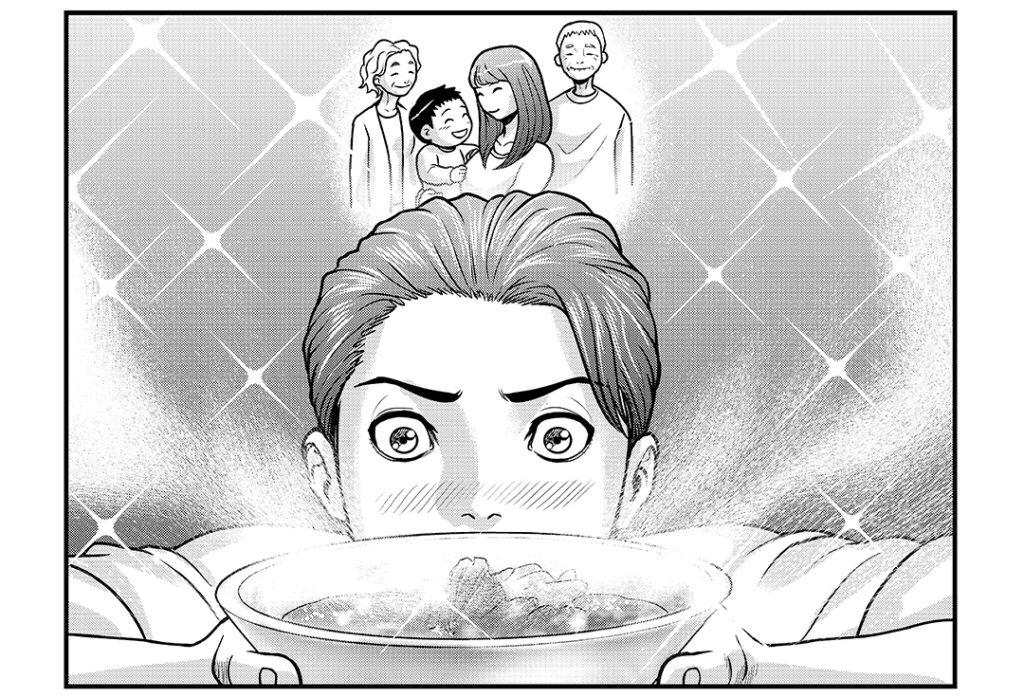
The moment he thought that, Honma couldn't sit still.
There is only one way to solve this.
"Dad, let's open more stores so more people can enjoy this flavor!"
A part-timer who had been working there for two months suddenly applied for a position.
I blurted it out and told my dad about it, but I also remember the thought crossing my mind that he'd get angry!
"...Can you do it?"
However, the response I got was different from what I expected.
My father looked at Honma with serious eyes. He had only one thing to say.
"can!!"
"I used to think the same thing. I'd completely forgotten about it though..."
When I said that, my stubborn father grinned and replied.
This was the first time that Honma and my father had a mutual understanding.
The next day, I went to work early as usual and was cleaning the pot when I saw an old man riding his bicycle to work. He was riding his usual flashy red bike.
However, something was different from usual: he was holding a large paper bag in his right hand.
"Look, Honma. This is it!"
"What is this...?"
When I opened it, I found a large stack of bills inside.
"I have 30 million yen. Use it to make your dreams come true."
While his father enthusiastically thrust out a wad of cash, Homma replied,
"Dad, it's not enough."
"Huh?"
The stubborn father took a step back.
30 million yen was not enough to realize Homma's plan to open a large number of stores, and 300 million yen was needed.
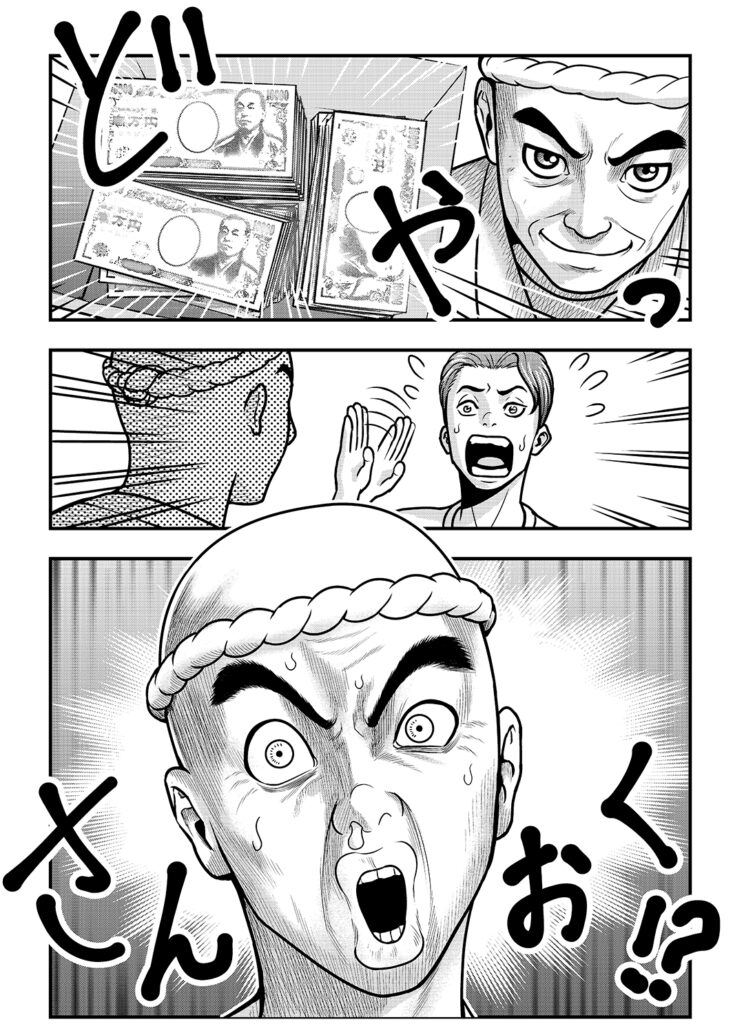
"So, what should we do?"
"Please give me some time every day after lunch. I need a company that can handle financing to make this idea a reality. I'll go and pitch to companies every day until I find one."
Hearing this, my father thought for a while and then said, "Okay, wait a moment."
With that, he left again, carrying a paper bag full of bills.
Later, my father, who came to work before lunchtime, handed Honma a piece of paper.
On it was scribbled the name of a large company, the person in charge, and their phone number.
"Homma, give us a call. We've arranged it."
With his father staring at him intently, Honma decided to timidly call the large company written on the notepad.
3. The battle for funding to realize the dream
Following his father's instructions, he called Maruha, a large company famous for its fish sausages, and made an appointment with Managing Director Yoshiro Nakabe, the heir to a wealthy conglomerate.
In between my busy work at the store, I went out to sell my business with a handwritten business plan and financial plan.
Homma's plan was to have the Aka Noren flag fly across the country! He wanted to open 200 stores nationwide! That was his only passionate desire.
The first time we met was at a coffee shop in Roppongi.
While spreading out the proposal, he spoke passionately about his dream of expanding Aka Noren to other stores.
However, after listening to Honma's passionate presentation, Chubu's reaction was just one word.
"One famous restaurant is enough."
"picture··?"
"There's only one famous restaurant, so it's a famous restaurant. I don't understand why they would open another Aka Noren restaurant."
That was the end of the conversation.
All Homma could do was say thank you and leave.
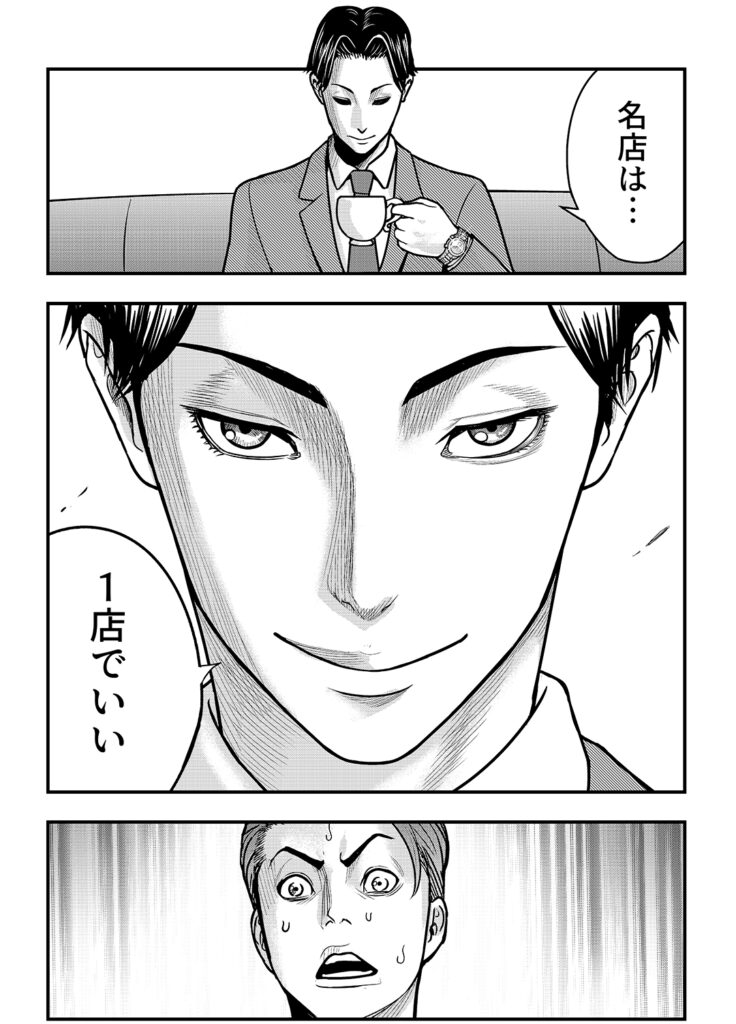
"Dad, it didn't work..."
I told him that my father's connections were a great help, but it was no use at all.
"Honma, just wait six months."
"No, but..."
"Okay, just wait. Don't go pitch to other companies in the meantime."
Without understanding what was going on, Honma had no choice but to wait, as his father had told him.
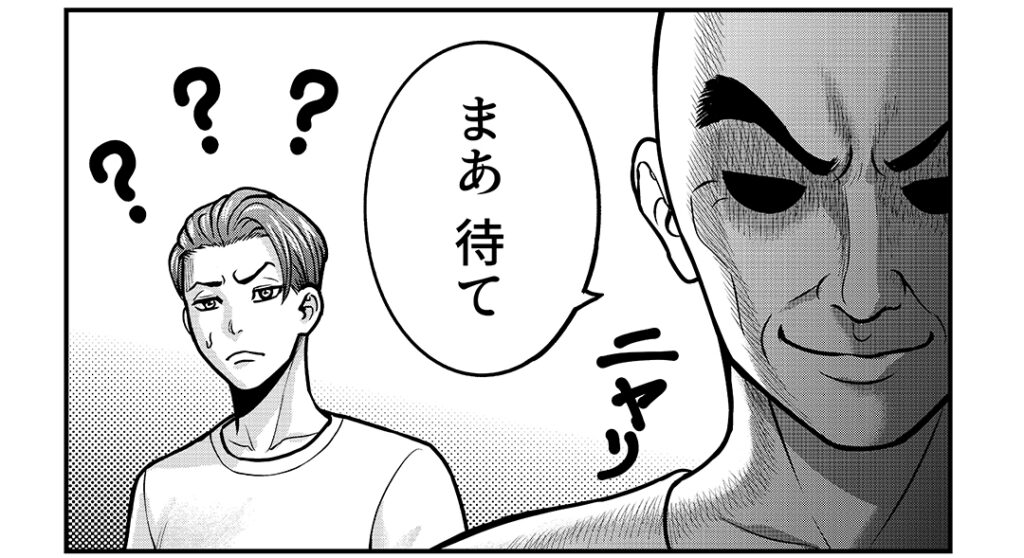
Then, a month or two passed, but still nothing happened.
It's just a really long time to wait.
I've talked to my dad about it a few times, but he just said one thing.
"Wait for a reply."
That was all.
Since then, August has arrived and summer is in full swing.
It was an unusually hot summer that year, and cicadas were chirping outside all morning.
Now, another busy lunchtime begins today!
Just as everyone gathered their energy and adjusted their loincloths,
"Sizzling!!!"
A phone rang.
"Sorry to have kept you waiting. Let's move forward with what we were talking about the other day."
It was the long-awaited call from Chubu-san.
It was exactly six months after we spoke that I received the call.
"Yessssssss!!! I did it!!!"
Big fuss with my dad!
At last, I can move forward with the plans I've always dreamed of.
We can share this amazing taste with as many people as possible.
I have never been happier than I was on this day.
It was another day when something happened that would change Honma's life dramatically.
After closing the shop, I had sushi with my dad and then we went to a Filipino pub in Roppongi and partied until the early hours of the morning, which is a fond memory.
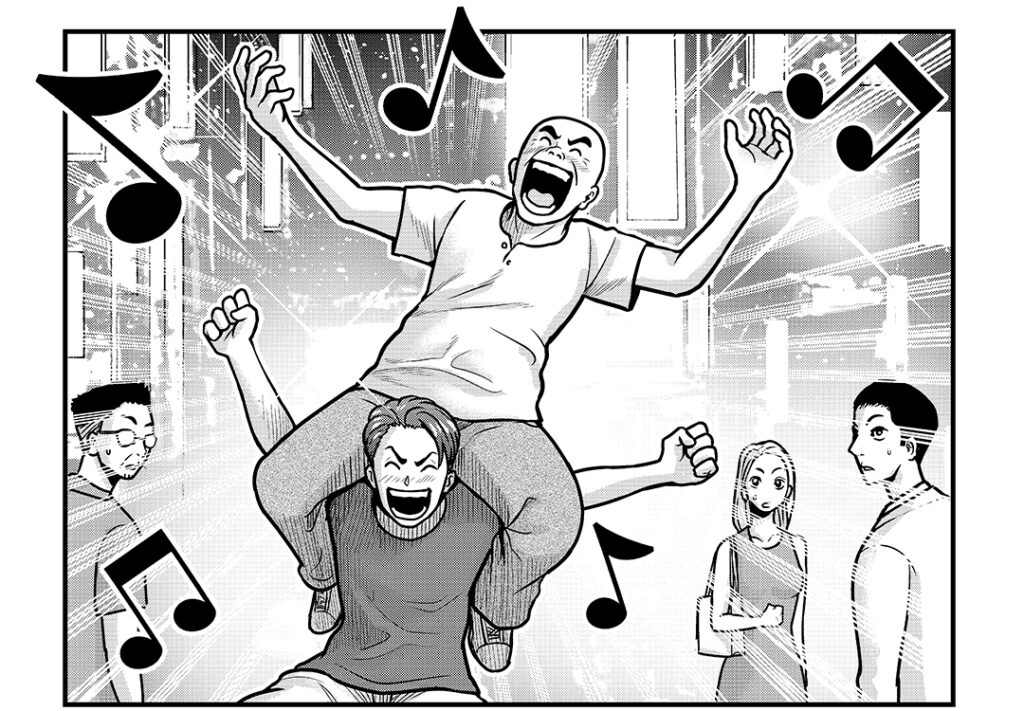
4. [The first hurdle] How to mass-produce consistently delicious soup
With investment from Maruha's affiliated companies, the company was established in February of the following year, 1994.
At this time, the restaurant was run on three pillars: Dad was in charge of the food, Honma was in charge of store operations, and the investment company was in charge of financing.
I also remember well the greeting given when the company was founded.
This was the first time I met President Komiya, who was Chubu's boss at the time.
"Homma-kun, I'm counting on you from today onwards. If you have any problems in business in the future, please come and talk to me anytime."
"Then... I have one request."
"Hmm..."
President Komiya responded to the sudden suggestion with his arms crossed.
"Please give me a small desk. I need to create a store expansion strategy and various manuals."
At that time, Honma was very serious.
"Don't be ridiculous! Ramen shop doesn't need desks. Use a drawing board!"
"Drawing board...!!...Boo!!"
Homma burst out laughing at the word "drawing board." He ended up laughing so hard he was holding his stomach in the president's office.
President Komiya is the only president who has ever said, ``Do it on a drawing board.''
The company was founded with such a strong impression, but since Homma was not given a desk, there was nothing he could do but draw up a business plan on a drawing board.
And on May 30th of that year, "All roads lead to Nihonbashi."
With this concept in mind, the first Fukunoren store was opened in Nihonbashi.
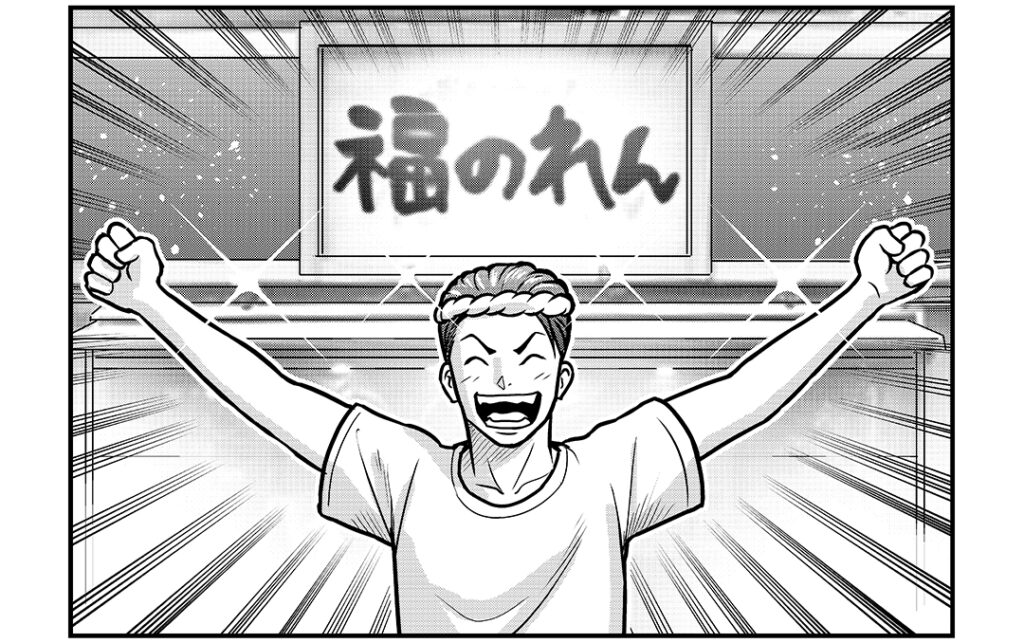
But here's where the problem arose.
"Raw material shortage"
In other words, there was simply not enough pork bones, which are essential for making the soup.
For example, Aka Noren used more than 100 kg of pork bones per day and more than 3 tons per month, so if they were to expand their stores with this amount, it would be impossible for them to purchase it from a local butcher shop.
Moreover, they planned to open 100 such stores, which required 300 tons of pork bones per month.
Facing this problem, I bought pork bones from various shops and cooked some soup experimentally. One day,
"Homma!! What is this soup!!"
Honma, who had just finished preparing soup in the middle of the night, jumped up when he heard his father's loud voice.
"Well, what...did you do something?"
"Where did you get this from?! What kind of pork bones are these?!"
Homma had mastered making soup within two months of joining the company, but he still had a lot to learn about selecting the right ingredients.
"Try it!"
So my dad urged me to try it, and I drank it hesitantly.
"Huh... it's supposed to be made using the same pork bones, but it's completely different from usual..."
Yes, this time I was cooking using frozen pork bones, which can be purchased in large quantities on a stable basis. Frozen food can be stored for a long time, making it possible to purchase in large quantities, but it can also be said that the ingredients have deteriorated over time, and it is not even clear when they were made.
In order to create the Aka Noren flavor that Honma loved, they never used any of these degraded products, and instead purchased raw ingredients with an emphasis on freshness, thereby maximizing the high-quality sweetness.
"Also, you were trying to take the easy way out, weren't you?"
Honma was startled.
This is because using frozen ingredients means purchasing ingredients that have already been pre-processed.
If raw ingredients are used, the pork bones will have a distinctive smell and bitterness if they are not properly pre-treated by Blood removal.
In other words, to create the Aka Noren flavor, fresh ingredients had to be used and carefully prepared. This not only required sourcing the ingredients, but also created the hurdle of technical training.
"But I have no choice but to do something about it..."
Although it was a headache, Honma made up his mind.
How can I solve this problem...?
From then on, every night after closing the restaurant, Homma read books on Ramen management, business books, and books on franchise restaurants, searching for clues hidden somewhere, but he couldn't find a clear answer.
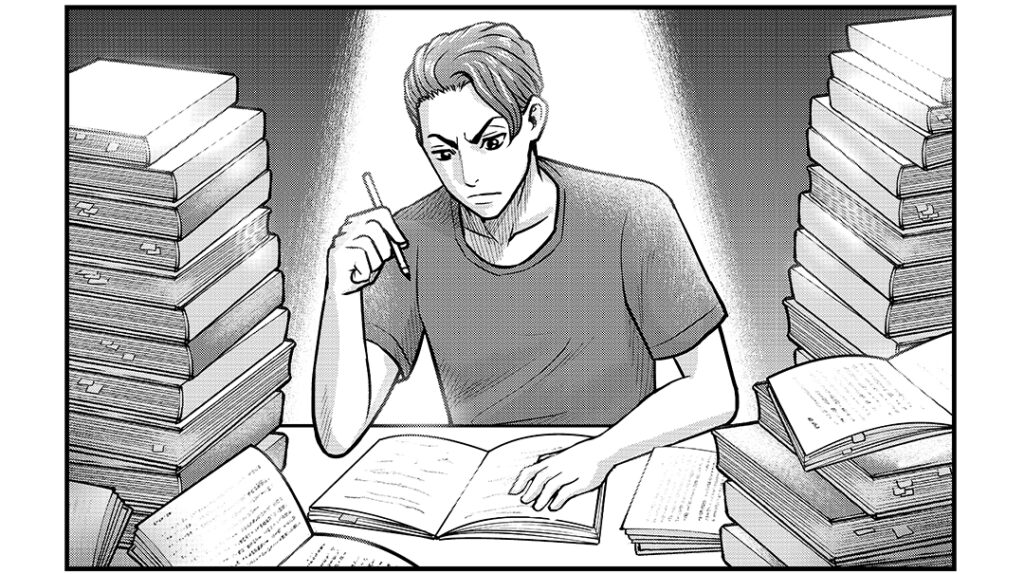
One day,
"Homma-kun, can you come to my office now?"
The call was from investor Chubu.
"I wonder... I can't tell you now that it's difficult to expand our stores... I wonder if they've noticed?"
I visited Chubu's office with a pounding heart.
"Is there any problem?"
That was the first thing he said.
"Um..."
As I was wondering what to do, as if he could see through me,
"It's the raw materials, right? We've already dealt with that. Please discuss it with the person in charge here."
The business card he handed me was that of the vice president of Nippon Ham.
In fact, Nakabe originally worked part-time at Aka Noren when he was a student.
I got along well with my father, and that led to the discussion of this investment.
Moreover, because I had been working part-time for so long, I was aware that raw materials would be a bottleneck, and the reason it took six months for me to get a response to my first phone call was because they had been working behind the scenes to secure the raw materials.
"Chubu-san, that's amazing..."
Homma was simply overwhelmed by the amazing management of large companies.
In fact, Chubu is younger than Honma, but he is always paving the way for Honma, from investing in him to securing raw materials, and no matter how many years pass, Honma says he will never be able to look him in the eye.
5. Mass production of soup begins in factories
A few days later, through an introduction from Chubu, I had the opportunity to meet with Nippon Ham's Vice President, Higashi Heihachiro.
My first impression of Azuma was, "He's big and scary..."
This is because at the time, Azuma was the top non-relative at Nippon Ham, and whenever he walked down the hallway, two or three executives would always walk behind him like bodyguards.
It's exactly like the scene you often see in doctor dramas, where senior doctors follow behind the hospital director.
Moreover, he was over 180cm tall and wore a sharp suit, a high-end suit that looked slender and cool. He was also handsome, so I think he must have been very popular at the time.
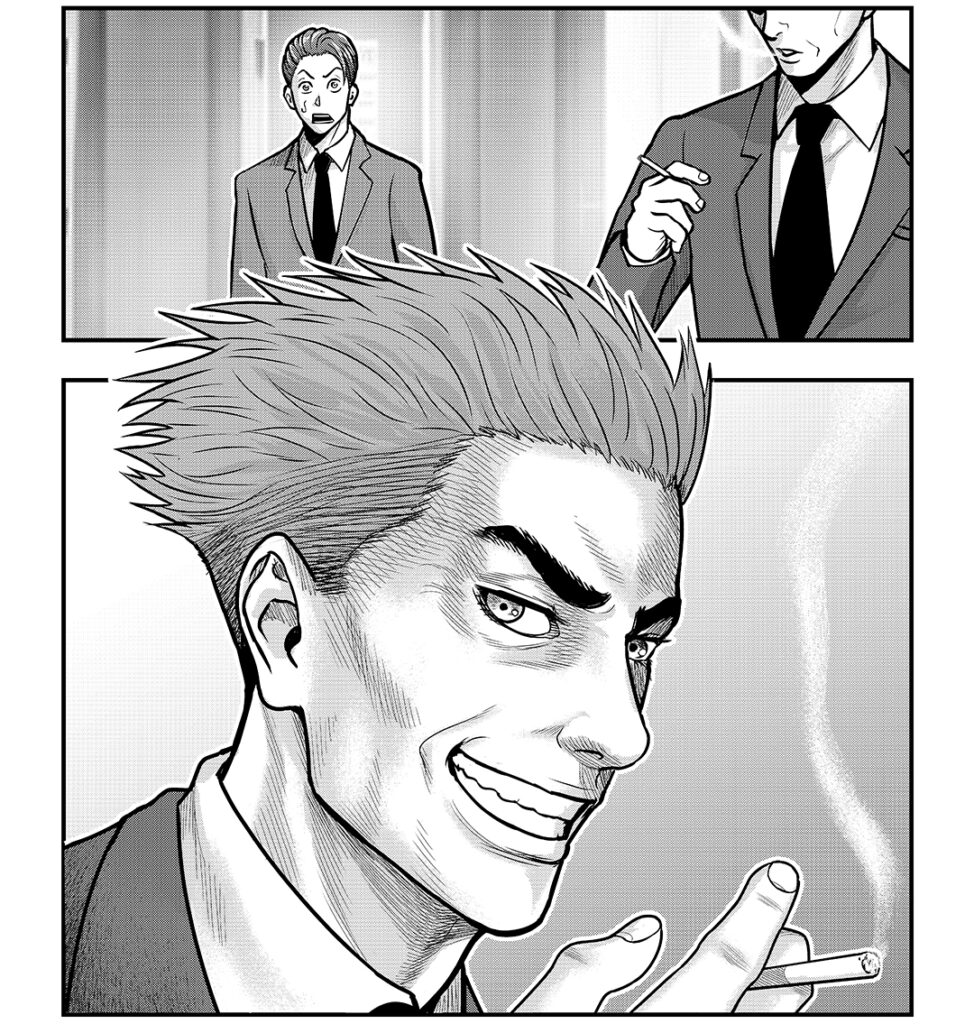
There is also this story about Mr. Azuma.
At the time, I was drinking with other Nippon Ham employees near the company. We were chatting away, laughing and talking about vulgar things, when suddenly the door to the bar slammed open and all the customers stood up.
They all bowed in unison and said, "Thank you for your hard work today!!!"
At that time, Homma was the only one sitting there.
That's right. The person who came in at that time was Mr. Azuma.
He had such an aura and talent.
Returning to the topic, after exchanging greetings with Azuma for the first time, Homma briefly spoke to him.
"Homma-kun, let's go to another room."
"A separate room?"
Why do we need to go to another room when we are talking in the vice president's office?
Honma was surprised when he saw the room he had silently followed into, without knowing why.
The room is yellow.
"What is this..."
The wallpaper was bright yellow, the copy machine had turned brown, the telephone was sticky, and the desk was covered in ash...
Yes, this room was Higashi's exclusive "smoking room."
"They've been so noisy lately..."
Seeing this lonely look on his face, Azuma lit a cigarette.
I see, so the quality of this room was created by the cigarette smoked by just one person, Mr. Higashi.
Ignoring Homma, who seemed strangely convinced, Azuma continued.
"Homma-kun, it seems you want some of our pork bones?"
"Yes, I've heard that the bones are usually thrown away or used as fertilizer. If they're just going to waste, why not donate them to us at Ramen shop and make us 1 or 2 yen for them? Even after using them in the soup, they should still be good enough to be used as fertilizer."
Azuma just listened in silence to Homma's passionate presentation.
It was about 10 minutes after listening to Honma's presentation in silence that Azuma spoke again.
"Homma-kun, how many Ramen restaurants are there in Japan?"
"Well, there are probably over 30,000 to 40,000 Ramen specialty stores."
"Hmm, that's not much..."
Higashi looks at Honma as if he is testing something.
"...But if you include Chinese restaurants, I think there are 70,000 to 80,000 stores, and if you include family restaurants, there are over 100,000 stores!"
Hearing this, Azuma raised his wide-angle lens, grinned, and quietly replied:
"Okay then, let's provide the ingredients."
"Really?! Thank you!"
Homma jumped up and bowed.
"However, there is a condition..."
"picture…?"
Honma raised his head while still in a bowing position.
"If you use our ingredients, you must have a 10% share. That's the condition!"
Azuma spoke with a mischievous look on his face and a smile.
"Of course! Leave it to me!"
Homma answered immediately without thinking.
With the cooperation of Nippon Ham, we were able to obtain the raw materials we needed, and they were also able to manufacture soup using the raw materials right at the factory.
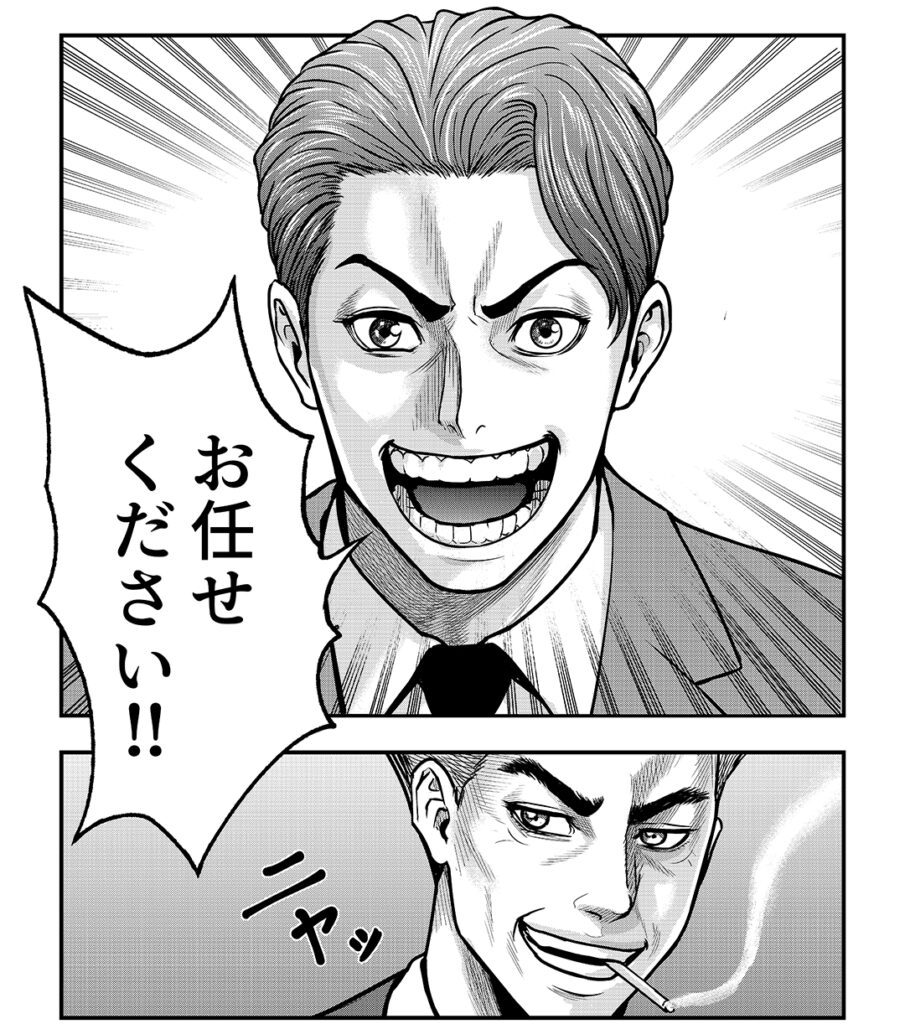
From that day onwards, Homma traveled around Japan to factories and conducted various manufacturing tests.
However, every day is a series of failures.
The soup made in the restaurant is prepared and boiled in a 200-liter pot, but when it is produced in a factory, it is made in a 5-ton pot.
Even if we use the exact same process as in the restaurant, we cannot make the same soup, and we continue to produce low-quality soup every day.
The 3-ton soup ended up smelling like pork bones because the bitterness wasn't properly removed.
The boiling could not be controlled properly, and the soup overflowed from the pot, covering the factory floor with pork fat.
The soup became thick because the pot was not stirred properly and the ingredients at the bottom had rotted.
There are countless examples of failure.
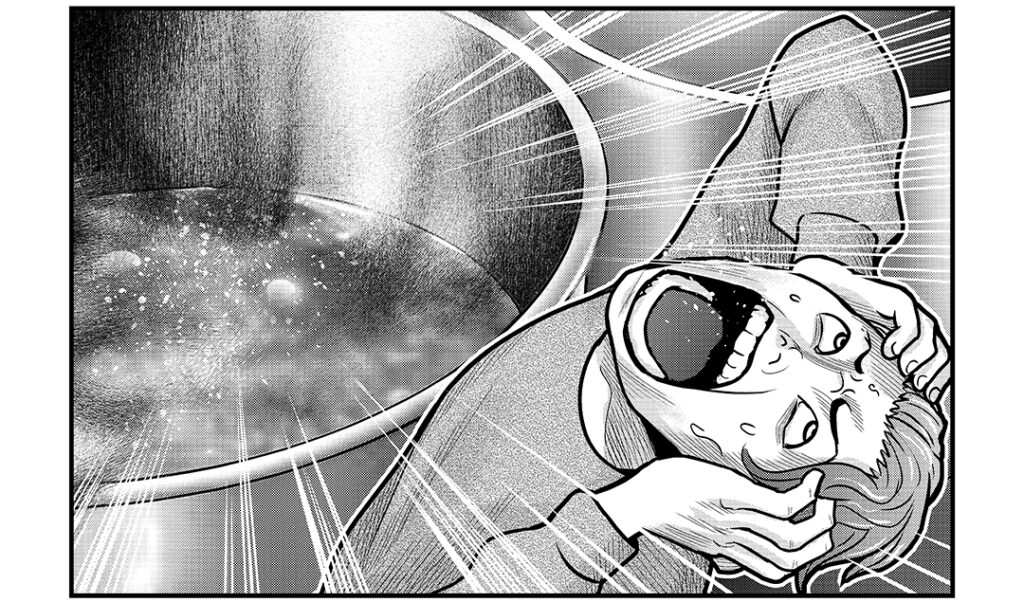
As I struggled every day, I gradually began to understand how soup was made in a factory, but no matter how many times I tried, I couldn't make a tasty soup.
Perhaps because the soup was cooked in a 5-ton pot, unlike the ones used in restaurants, it was not possible to stir the soup properly, and the bones did not produce any broth.
As time passed without the problem being resolved, it was February, the middle of winter, and it was extremely cold.
At the time, Homma was in a basin at the northern tip of Kagoshima, known as the "Hokkaido of Kagoshima Prefecture," where temperatures drop below freezing in winter.
That day, the soup making had failed again, and I was holding a meeting with the owner of Aka Noren to find out the cause, but no answers were forthcoming.
"Homma, the bones haven't finished releasing their broth yet. Unlike the pots at the restaurant, you can't stir them, so I think the bones haven't completely dissolved yet."
"I see... but I can't keep cooking the soup any longer and ruin my bones..."
Our Pork bone broth was always boiled for eight hours.
This is because if you continue to cook it for more than eight hours, the molecular bonds will break and the soup will become scientifically unappetizing.
"I wish the bones could be cooked a little looser."
Hearing his father's words, Homma came up with an idea.
"Dad, if cooking doesn't work, why not just steam it?"
"Steaming it might actually produce a good broth, let's give it a try."
"Let's do it right away!"
Homma has no choice but to try anything he thinks of as soon as possible, but because he had failed that day, Nippon-Ham did not give him permission.
"If we do it that way, it might work, but if we don't get permission, there's nothing we can do. What will we do, Homma?"
The man at Akanoren began to speak, puffing out cigarette smoke.
"That's true, every time I fail, I end up spending hundreds of thousands of yen on materials, utilities, etc..."
Honma can only give vague answers.
And so, without coming to an answer, we continued to talk in the chilly evening conference room,
"Why don't you just do it yourself?"
With these words, the head of Maruha's chemical products department and the sales manager of Nippon Ham came into the conference room.
"Eh, is that okay...?"
Although I was a little confused, I felt like a light was shining on my mind.
"From our perspective, we can't say you should do it."
With that, the section chief and department manager laughed heartily.
"So, shall we break in?"
Realizing that this was their only option, Honma and his team decided to "illegally break into" the factory in the middle of the night.
Even though they knew it was wrong, they became accomplices.
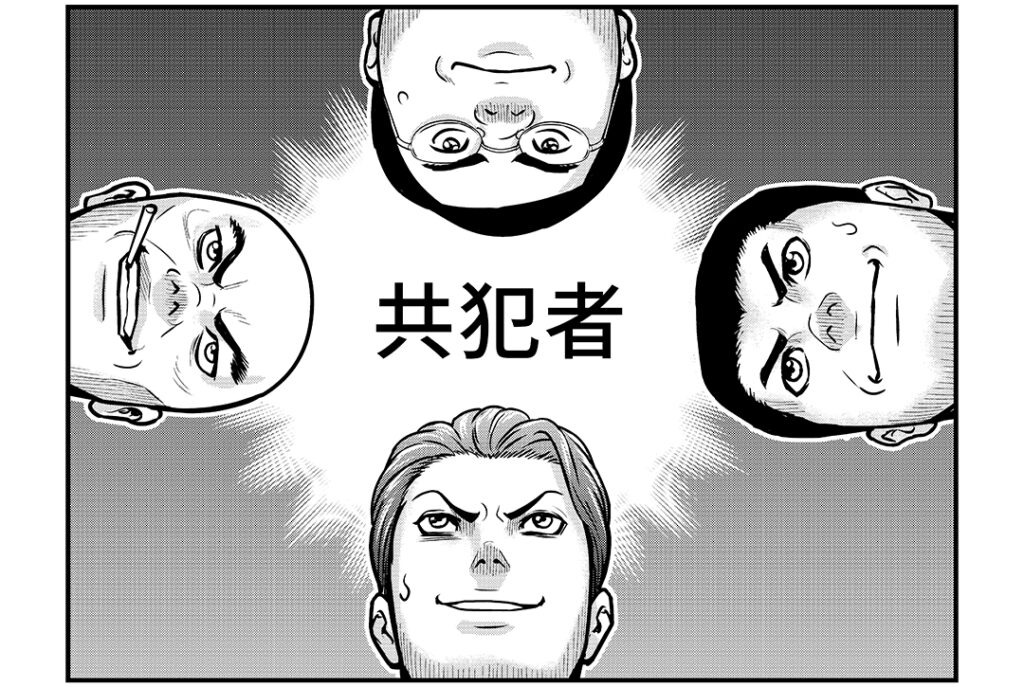
After making sure that all the employees had gone home after 8:00 p.m., he sneaked into the factory at night using a key he had stolen beforehand.
At that time, security was still lax and there was no such thing as Secom.
The four intruders were Honma, the Akanoren boss, the Maruha section chief, and the Nippon Ham department manager.
The factory is silent and pitch black. It is bitterly cold at night in Kagoshima, Hokkaido.
Turn on the light in the room where the boiler is located.
"Click!"
"...Huh?! Huh?!"
Everyone was surprised at the same time.
There was a huge amount of pork bones prepared next to the pot.
In fact, the factory manager knew about the trespassing.
And so, with the tacit understanding that they knew but didn't know, Honma and his friends sneaked into the factory.
The advance preparation of these raw materials was also a thoughtful arrangement by the factory manager.
Homma, who was unaware of this at the time, was delighted to use pork bones, start the kettle, and begin cooking soup.
It was pitch black outside, and the only sound echoing through the silent factory was the sound of the furnaces operating.
Early in the morning, while we were all taking a nap in the office,
"Clack!"
Suddenly the office door opened.
It's still 4am, not yet time for anyone to go to work.
They all jumped up at once and looked towards the door.
I remember that everyone had pale faces.
"Yooo! How is it going?"
The person who came over and said this was the factory manager.
It was here that Honma and his team discovered that it had all been arranged by the factory.
After a brief conversation,
"Youth is great!"
The factory manager laughed heartily as he said this and left.
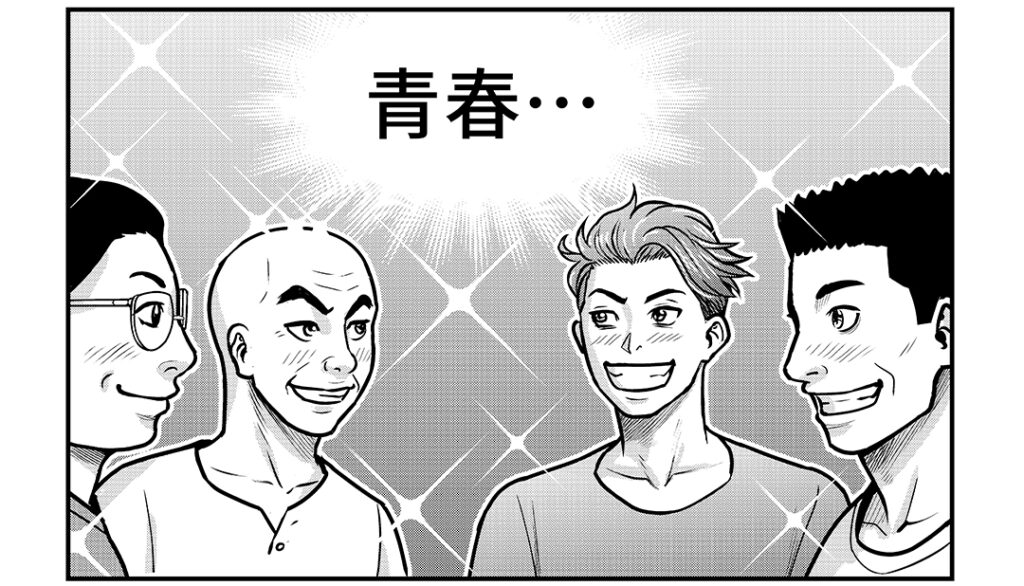
"Youth, huh..."
Even though I was no longer young, my heart was pounding.
Looking at the faces of the other members around me, I'm sure they all felt the same way.
When I thought about how so many people had contributed to a project that started on a whim, I was so deeply moved that tears welled up in my eyes.
That was the only cup of instant coffee I've ever had that tasted so good.
The soup was completed in the morning, and as Murashi had predicted, it was a huge success.
We were able to fully bring out the richness of the soup, which had been difficult to achieve until now.
"Dad! How about this? With this method, we can mass-produce it in a factory."
"Yes, it's well done. But, Honma, if we're craftsmen, this won't do."
"Oh, is there still a problem?"
The soup is finally finished. I break out into a cold sweat, thinking about having to start all over again.
"The freshness here is a little off. Do you know why there are so many sushi restaurants in Ginza?"
When Honma heard that, he was taken aback.
The fresh fish available at Tsukiji Market is the reason why Ginza is lined with so many delicious sushi restaurants, all just a few minutes' drive from the market.
The freshness of the ingredients would have been lost in such a mountainous area.
If we hadn't made it as fresh as possible, we wouldn't have been able to create a soup that my father was satisfied with.
Homma and his team were faced with another difficult problem.
6. Seek the highest level of freshness
So Homma decided to visit Azuma again.
"...Excuse me."
When I opened the door to the vice president's office, Azuma was sitting on a large desk, engrossed in reading a financial newspaper with a serious look on his face.
"You're here? Something's wrong? Anyway... let's go."
He then pretended to smoke a cigarette.
Yes, it was an invitation to Higashi's usual "smoking room."
In a room that was completely yellow with tar, Honma quickly talked about everything that had happened up to that point.
We have finally arrived at a soup-making method, and in order to take it to the next level, we want to make it with the freshest possible quality.
After listening to Honma's story for a while, Azuma took a drag off his cigarette in one gulp from his large body, exhaled a huge plume of smoke from his mouth, and began to speak.
"If you want the freshest food possible, there's only one way to do it."
"One..."
Honma couldn't understand what Higashi was trying to say.
"Pipe through!"
"A-A pipe?!"
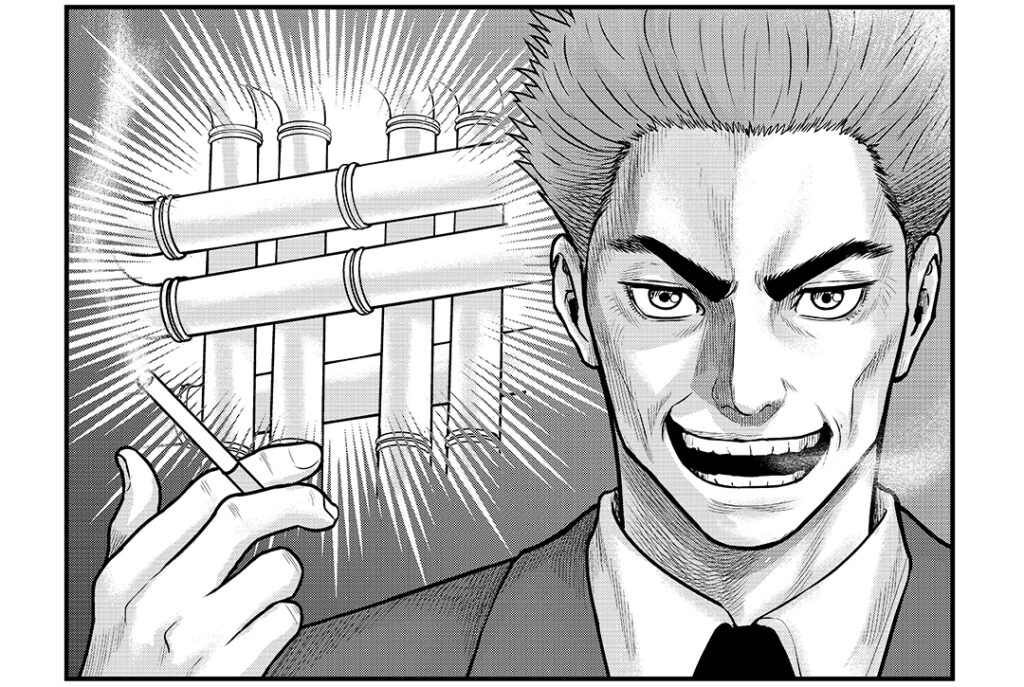
"Let's build a soup factory inside the slaughterhouse!
And the moment the animal is reduced to bones, it is sent all at once through a ``pipe'' to the factory.
Then the travel time is only a few seconds.
If you do this much, you will achieve the freshness you desire."
"You... you can do that?"
"You're going to get 10% of the market share, right?"
Grinning, Azuma lit a second cigarette.
7. An unexpected surprise: the taste is even better
A few months later, with a single word from Azuma, the plan was put into action.
The new factory equipment that was completed was designed to be even better than what Nitto had described.
The meat butchering process is an overwhelming sight, with hundreds of part-time women standing on either side of a huge lane, separating the meat from the bones as it flows by.
The separated bones are then dumped into huge "holes" located next to each of the women's homes, one by one.
Yes, this was the "pipe" that Azuma was talking about.
The rice travels through this hole and is then sent through a pipe to the attached soup factory, which takes just 90 seconds.
I decided to immediately try making soup using these extremely fresh ingredients.
"Y-yummy!!!"
Everyone who tasted it looked at each other with disbelief. It was incredibly delicious.
Is this the power of freshness...?
But this unprecedented rich flavor isn't just about freshness.
The taste surpassed the Aka Noren flavor I was used to eating.
"...This taste is... meat..."
My father muttered a word.
Aha, this is the deliciousness of meat! It's a deliciousness that can't be achieved with bones alone.
In fact, something that Homma and his team hadn't anticipated was that, unlike the butchery in town, the butchering at the factory was done by part-time ladies in an assembly line, all at once. This work was done quickly and with an emphasis on efficiency.
In other words, unlike local butchers, the butchering was done somewhat roughly, resulting in a large amount of meat still attached to the bones. This was the secret to its deliciousness.
It was truly a pleasant surprise.
This is the result of a special manufacturing process based on various experiments conducted over three years, with the ultimate in freshness and a deliberately generous amount of umami-packed meat.
This was the quality soup that Honma and his team were aiming for, and even my father was satisfied with it.
The soup is cooked just until the very last moment before the molecules break, giving it a milky sweetness and a rich, smooth and creamy texture that brings out the full flavor of the pork bones.
The soup is made from ingredients that have been carefully drained of blood and extremely freshly processed bones, and is truly delicious, without the distinctive pork bone smell.
It's already been three years since the commercial soup project began, and this is how Homma and his team finally achieved their goal of creating a rich, additive-free tonkotsu soup.
Word spread quickly that the ideal soup had been created, and both Chubu and Azuma, as well as everyone else who had helped, were delighted.
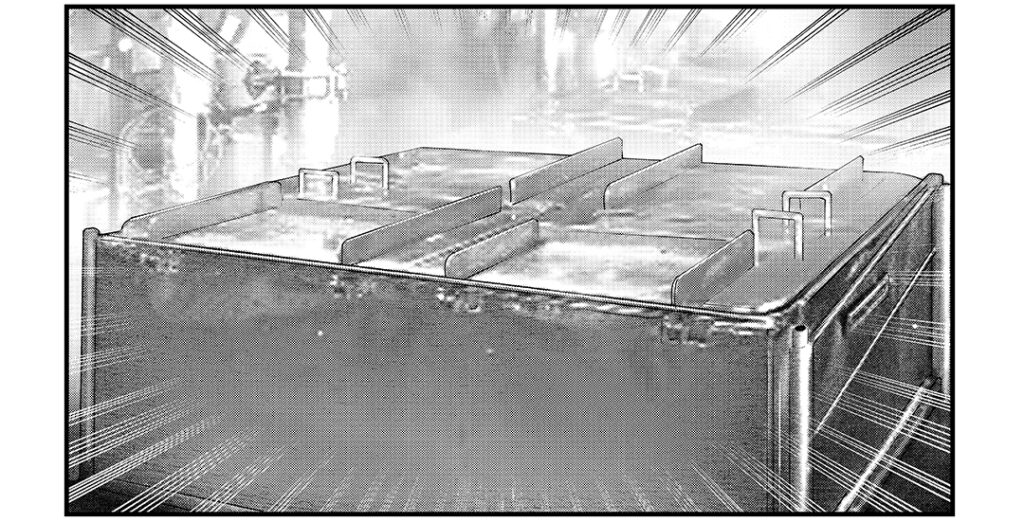
8. The second turning point in my life
Once soup production at the factory was complete, Homma worked nonstop every day to make his dream come true.
Twelve years have passed since then, and Fukunoren has expanded to 18 stores, mainly located in business locations in the Tokyo metropolitan area.
The concept of "Fuku Noren" was inspired by the food stalls of Hakata and was developed into a "Ramen izakaya" restaurant, which became a huge hit.
All of the exhibiting stores had monthly sales of over 10 million yen, and the stores received a great response every day.
This service, which is rare in Tokyo, allows you to enjoy snacks and alcohol and then finish off with Ramen, and Tokyo's office workers were hooked every day.
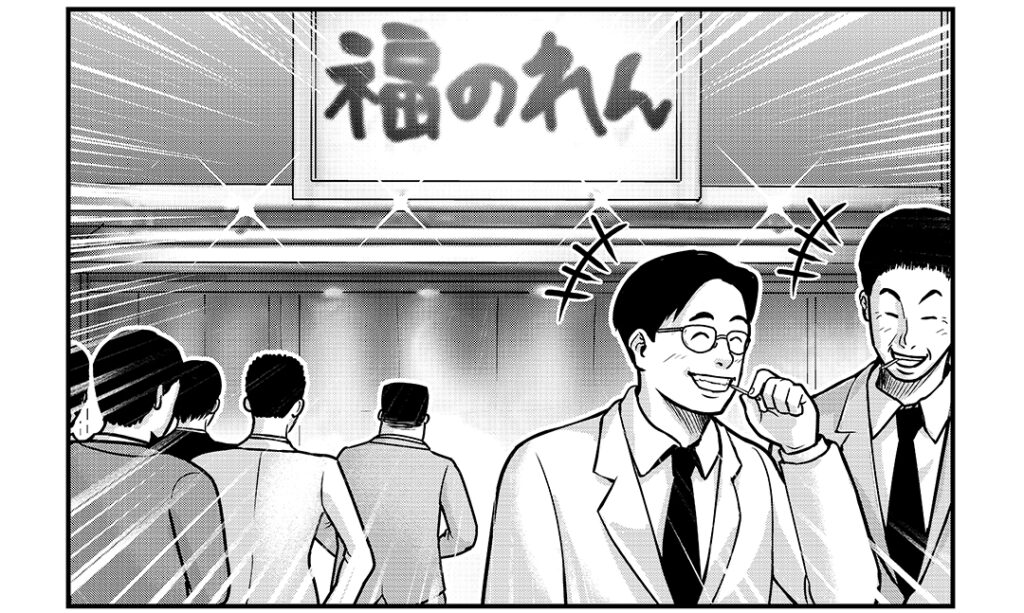
However, just as things seemed to be going smoothly for Honma, something unexpected happened.
In 2005, Maruha, the parent company of Fukunoren, decided to separate its subsidiary, Maruha Restaurant.
As a result, it was decided to merge Maruha Restaurant and Fukunoren, and Fukunoren was renamed Yoshimaru.
Homma, unaware that such a policy had been decided by the management team, was suddenly called in by Chubu.
"Homma-san, could you please move to Maruha Restaurant?"
"...What should I do at Maruha Restaurant?"
"I want to work as an employee"
"Are you an employee?"
In other words, his status as an executive officer of Fukunoren was abolished and he was employed as a full-time salaried employee.
My time at Red Lobster, my encounter with Aka Noren, the various failures in soup production, and the success at Fuku Noren... Memories of the past 12 years flashed through my mind like a slideshow.
But Homma had made up his mind. There was only one thing he wanted to do. It hadn't changed since he was a kid.
Without thinking, my mouth started moving first.
"I decided to quit Red Lobster and run a Ramen shop, and that's how I've managed Fukunoren up to this point. If I ever go back to a restaurant, I'll quit right now."
"Why did you answer so quickly about such an important matter?!"
Chubu, who had never been angry before, raised his voice for the first time.
Chubu was furious, but Homma had always been a man who made quick decisions, so he immediately gave a defiant response.
Later, Homma said the following about this:
"Chubu-san may have been thinking about my future and preparing me for a position, or perhaps I had acted foolishly. However, I could no longer bear it and immediately handed in my resignation."
It was December 23rd, 2005, just one week before the New Year.
Homma retired from Fukunoren and became unemployed.
9. A fresh start and revival.
One week after he became unemployed, in January 2006, Homma turned 49.
Fukunoren now has over 18 stores, and if it uses this as a base for franchising and expanding its stores, it could potentially reach 50 or even 100 stores.
Suddenly, I lost it all. I was depressed and unable to do anything.
In the midst of all this, my boss at Red Lobster, who was also my mentor, came to visit me.
The person was cheerful and encouraged Honma throughout the session.
"Honma, I'm glad you quit!"
"Yes, there were a lot of things that happened and I decided to quit..."
"Those 12 years since you started working with Ramen weren't a waste! I'm so glad... Now you can really do what you love."
"That's true..."
I answered with just that one word, and just as Honma was about to start talking,
"But you... you don't think it's enough for you to feel good and just open a shop, do you? Look behind you, how many people are following you? Homma, don't do anything irresponsible."
I was shocked.
It was all visible.
In fact, when I left Fukunoren, three of my subordinates came with me, and I thought that if I could open a Ramen restaurant, I would be able to feed just my family and my subordinates, so I was in the process of negotiating a store contract with a real estate agent.
The next day, Homma immediately terminated the store contract.
And I decided to seriously rethink my life.
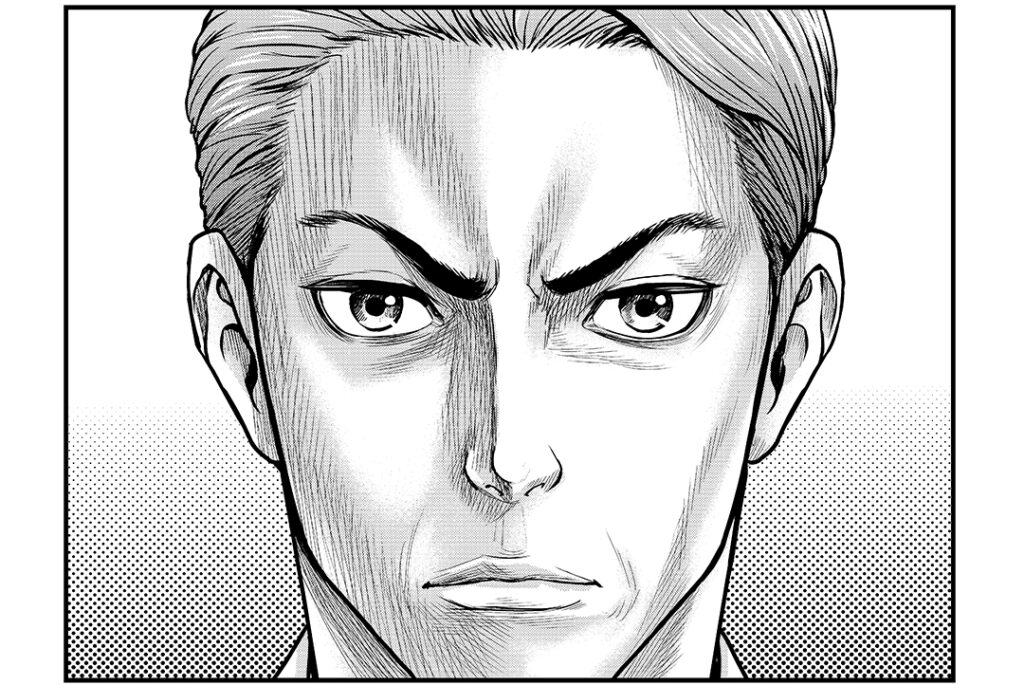
For the next six months, Homma simply continued to think about what he needed to do.
After asking myself this question for half a year, I finally came to the answer.
We want to bring happiness to people through food.
Today, food products made with additives and scientifically formulated ingredients are commonplace.
We want to deliver safe and authentic food.
I believe that human happiness comes from having all the necessities of life: food, clothing, and shelter.
Dress fashionably, eat delicious food, and live in a comfortable home...
Food is an inseparable part of living a stylish (rich) life. I want to make people stylish through food.
To achieve this, the weapon I have is the "manufacturing and selling additive-free soup in a factory," which I have learned through many years of research.
I thought that if I could be of some help by offering this soup, then perhaps that was my mission.
So, with a fresh start, in August 2006 he founded COOKPIT Co., Ltd., the industry's first company to manufacture and sell straight soup.
The company name COOKPIT embodies the idea that "the happiness created by the chef (cook) controlling (pit)."
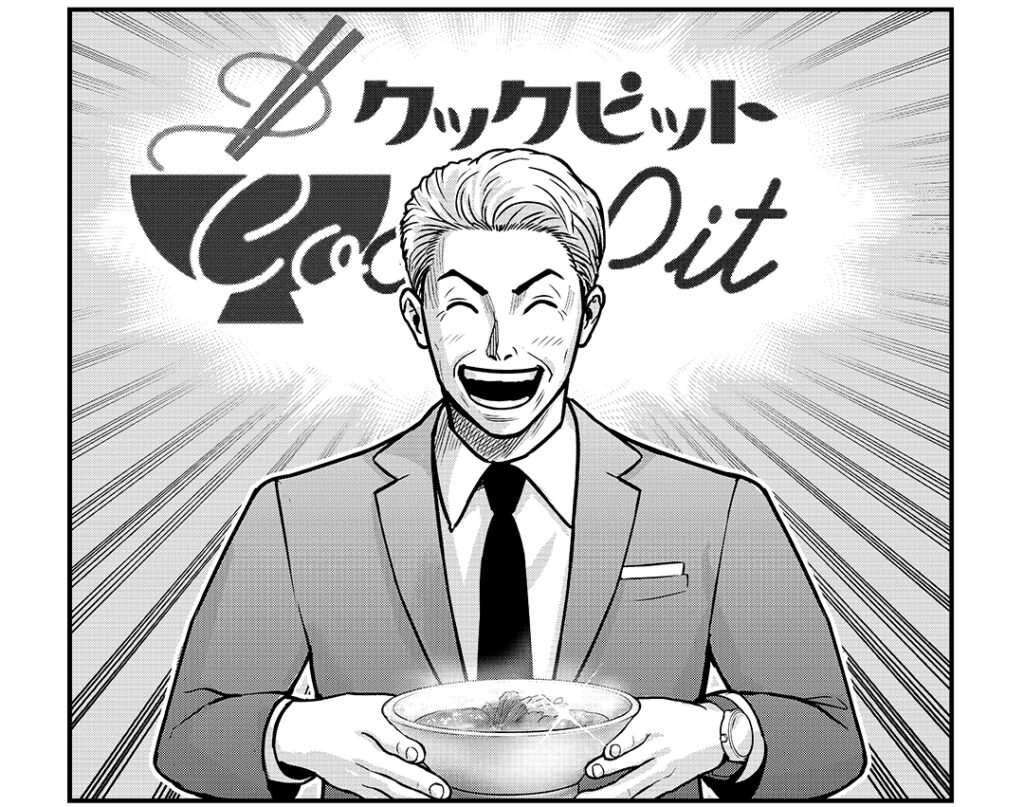
After launching COOKPIT, the product lineup steadily expanded to include "Tonkotsu Soup," "Chicken White Soup," "Beef White Soup," and "Sea Bream White Soup."
In 2022, 17 years after its founding, the company has grown into a soup maker used in over 2,000 restaurants across the country.
*Some parts of the dialogue are fictional.
\ Read Chapter 2!! /
*Currently in preparation
Five years after Chapter 1, COOKPIT finds itself in an unprecedented predicament due to the effects of the COVID-19 pandemic.
Due to the state of emergency declaration, soup sales are less than half of what they were last year. With debt mounting and the COVID-19 situation showing no end in sight...
With Homma now 64 years old and no successor in sight, what should COOKPIT do in the future?
What is the absolutely impossible strategy they used to break out of this situation...?
Continued in Chapter 2.
(Scheduled for release around October 2024)
Soup made with life on the line
Soup made with life on the line


![[Commercial Ramen Soup] Chicken White Soup](https://cookpit.jp/wp-content/uploads/2024/07/0660ed1301aeac2bc4fe87c6ebb3f099-1.png)
![[Commercial Ramen Soup] Chicken Clear Soup](https://cookpit.jp/wp-content/uploads/2024/07/89df9d76ec0cf3b45280ed86d0d298ec.png)
![[Commercial Ramen Soup] Chicken and Pork White Soup](https://cookpit.jp/wp-content/uploads/2024/07/b058d90c1c73dc9888c712fc0c58917b.png)
![[Commercial Ramen Soup] Tonkotsu Soup](https://cookpit.jp/wp-content/uploads/2024/07/9cec2856bc9777abd035caa97c6b3b0f.png)
![[Commercial Ramen Soup] Beef bone White Soup](https://cookpit.jp/wp-content/uploads/2024/07/a933ef6a9bf8d424a75715f5075ee758.png)